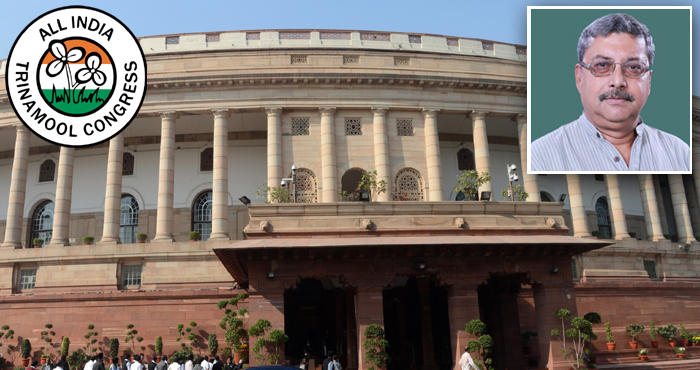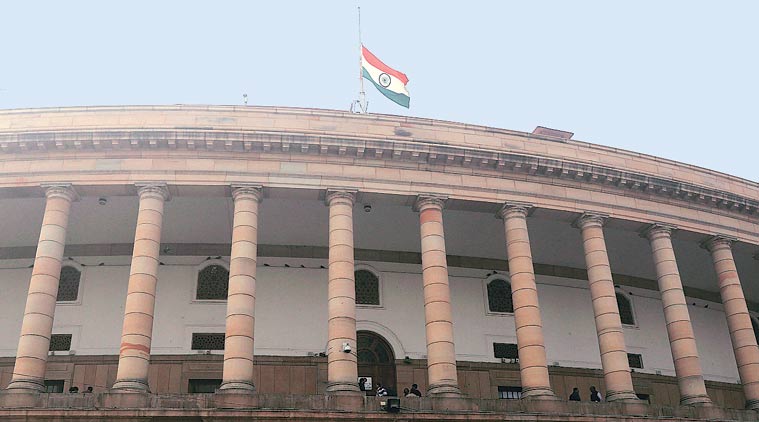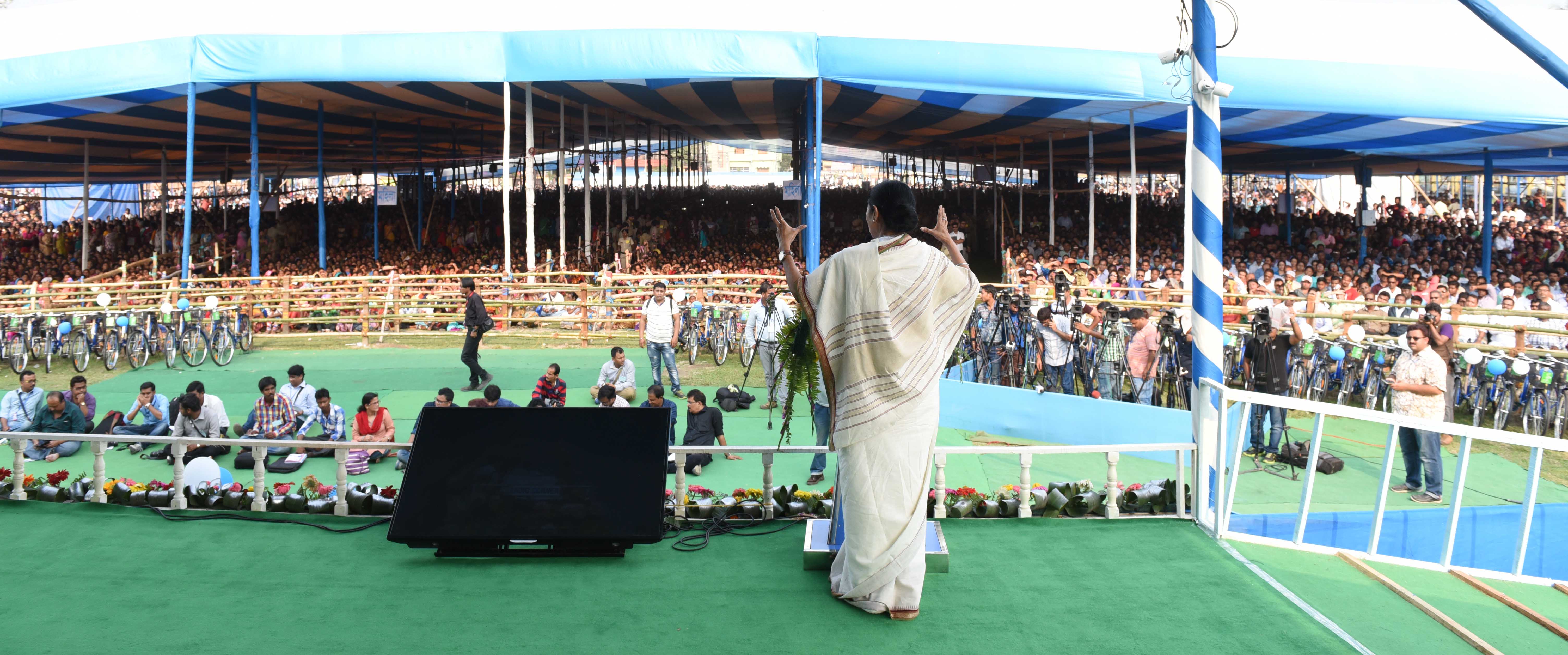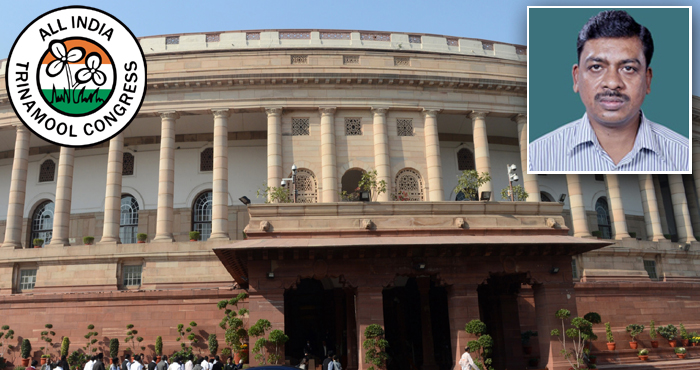FULL TRANSCRIPT
Sir, I am grateful that you have given me the chance to speak with respect of the GST Bill. Sir, West Bengal fought hard to preserve and protect cooperative federalism in the process of the formulation of the GST. It also fought uncompromisingly on fiscal autonomy of all states of the nation on matters of GST. This was the hallmark of West Bengal that is so visible in many parts of the Bills presented to us in the Parliament.
As Chairman of the Empowered Committee, the West Bengal Finance Minister was instrumental in bringing about a broad consensus amongst states on single control in the hands of the State below Rs 1.5 crore turnover of small business in its meeting in the great city Calcutta many months ago. I believe the honourable Union Finance Minister Mr Jaitley was a witness to this consensus amongst States that had not been seen even before. Such was a seminal role played by West Bengal in protecting cooperative federalism and fiscal autonomy of the states at many such occasions in the course of formulation of this GST Bill.
Our leader and the present Chief Minister of the State of West Bengal, Mamata Banerjee, had in-principle supported the concept of GST as early as 2009 in our party-manifesto. The idea was to usher in a strong and cohesive indirect tax regime that creates a single market for all trade and industry that is beneficial for the common man and small traders and enterprises.
A draft GST Bill was circulated in the month of September, 2016 which had many clauses that were not in the fullest interest of the States, common man and small traders and enterprises. But, through the deliberations of the GST Council, a number of ideas were thrashed out and I believe West Bengal engaged uncompromisingly in a spirit of cooperative federalism and fiscal autonomy of the States.
West Bengal took the lead and ensured that the Constitution Amendment on GST incorporates the commitment of the Central Government to give full compensation to the States on account of any loss due to GST for a period of five years. The Compensation Act has also been design keeping in mind the mandate of the 122nd amendment of the Constitution and this will ensure that no State in the country will suffer any financial loss due to GST.
Our state has always stood up for the marginalised and needy, small traders and manufacturers who provide the bulk of the employment; the industrial sector have been given due regard in the new GST Law. In this spirit, West Bengal pushed hard for the GST threshold to be raised to Rs 20 lakh turnover. So that small and tiny business are kept out of the purview of the GST.
A composition scheme has also been offered for small traders and manufacturers upto an annual turnover of Rs 50 lakh. This composition scheme for manufacturers is a new feature that will help protect small and new manufacturers, specially in the MSME sector. West Bengal stood firm on this new feature which will benefit lakhs of small businesses and make tax compliance much easier.
Additionally, in order to ensure least disturbance and to provide a single interface so that the assessee does not have to face more than one authority, the concept of cross-empowerment has been introduced in the law. The State Governments and the Central Government will empower the officers of the other Governments, under the respective Acts, the assessee has to go to only one office and deal with only one authority. Apart from this, in order to ensure that small traders do not face any problems in working with the new law, 90 per cent of the assessees of both goods and services below a turnover of Rs 1.5 crore have been kept exclusively with the State Governments.
The purpose of GST was to get rid of multiplicity of taxes and the related cascading effect and to unify different taxes into a single entity. Firstly, the ill-effects of inflation can be scuttled to a large extent. Adding to this, this removal of multiple tax structures means a reduction in the cost of compliance, the benefit of which should finally pass down to the consumer.
The entire structure of GST has been created on the premise that the common man must benefit from the unification of taxes, and therefore it is necessary that the rate structures of different goods and services are adjusted so as to reduce inflation and also the prices of goods of mass consumption, so that the average Indian benefits from this path-breaking enactment.
Another important benefit of the new Goods and Services Tax is the boost to ease of doing business. A common law and standardised treatment of taxable entities with the special feature of full set of tax liability incurred being transferrable throughout the nation means that businesses do not have to think in terms of sales and can compete on cost-effective and competitive products that can compete in international markets and benefit the common man at the same time. It is expected that such a major reform in the structure of indirect taxation will not only help curb inflation but will also have a very positive effect on the growth of GDP. It is hoped the one country-one tax regime will result in growth in all sectors boosting both rural and urban economies in this nation.
Having said so, even then, we have concerns in a few areas which I would now like to point out.
Number one: while the spirit of, and the law on GST is sound, with both the States and the Centre having played a role in ensuring that a sound legislation is in place, there are still some areas of concern as far as the implementation is concerned.
Number two: considering the scale of the reform, it is imperative that sufficient time be given to build up the structures required to ensure the proper implementation of the GST law, we should not rush through the preparation as that is bound to give rise to small but crucial errors which may hamper the implementation of the law. We need to look at the experiences of other nations and learn from the mistakes made there so that we can implement the law in a proper manner.
Number three: another area of concern is the rate structure itself. The process of treatment of rates for different goods and services is yet to be started. Unless the industry is informed about the rates and sufficient time is given, it will not be possible for them to modify their ERPs and systems well in time to meet the deadlines. Therefore it is necessary that the rate treatment process be completed quickly so that industry in general has reasonable time to prepare.
Number four: another area of concern is the preparation of the GST Network – the GSTN. The GSTN is the core system which links all the States and the Centre with the assessees and is pivotal to the implementation of this goods and services tax system. This is one system that cannot afford to fail as its failure will lead to a collapse of the entire indirect tax system of the nation. Therefore it is necessary to get all the models of the GSTN prepared and tested as quickly as possible so that the assessees and the industries have enough time to train up their personnel to gear up their systems.
A completely e-based indirect taxation system means that even the smallest player has to be on board without which the input tax credit (ITC) chain and linkage will be lost. The small businesses must be given adequate time to adapt themselves to this completely new system.
This is a complex fiscal reform. State and Centre together in a federal polity must take appropriate quantum of time which will be sustainable and successful. I will request the Hon. Finance Minister, through you, that we should not rush for this. Look into the defects once again. Do not rush for July 1 deadline. We have time till September 1. The arenas which have been discussed still have lacunae; errors are there which may make it difficult for implementation. These arenas should be covered and discussed and necessary amendments should be brought.
Overall the goods and service tax enactments are set to usher in an area of a higher compliance, efficient taxation, reduce inflation and better growth. It is important that the implementation is also made by both Centre and State in the true spirit of cooperative federalism helping build the nation together. That should be the spirit. No one should ask for only credit, we have all done this together.
Thank you, Sir.










